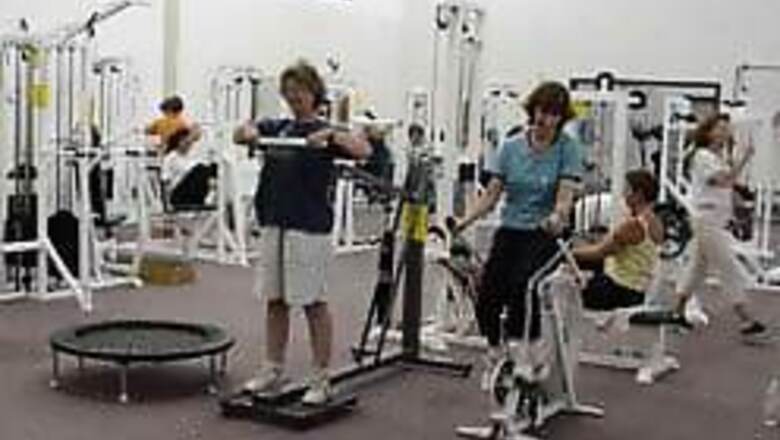
views
Albany (New York): Although the research is still thin, many health experts say even moderate exercise can help relieve the problems of menopause in some women, including anxiety, insomnia and night sweats.
Menopause, which typically occurs between the ages of 45 and 55, is when a woman stops menstruating. Symptoms can range from mood swings, to hot flashes, headaches and trouble focusing.
The National Institutes of Health (NIH) is conducting a wide-ranging study of several issues related to menopause, including depression, cognitive and sexual function.
NIH-backed research so far only suggests a link between physical activity and decreased symptoms of menopause saying that there is however, no proof that exercise is a cure.
Women who exercise may report fewer hot flashes simply because they are less preoccupied with such symptoms, said Sheryl Sherman, a doctor with the National Institute on Aging, an arm of NIH.
While experiences vary from woman to woman, some say even a little boost in physical activity goes a long way.
It is critical for women to get exercise at this time of life despite the lack of conclusive evidence that exercise relieves menopausal symptoms, a spokeswoman for the North American Menopause Society, Dr Lila Nachtigall said.
As estrogen levels fall, it is easier for women to gain weight, Nachtigall said.
Exercise also promotes an overall sense of well-being that helps women handle troublesome symptoms better, she said.
Small studies have also suggested the pluses of exercise.
One by the American College of Sports Medicine showed strength training helped reduce hot flashes and headaches by 50 per cent.
Another published in the Journal of Advanced Nursing found exercise boosted overall health-related quality of life measures in menopausal women.
A third in the Journal of the American College of Cardiology found exercise slowed the progression of hardening of the arteries, which is linked to lower levels of estrogen in women during menopause.
With exercise touted as a magic bullet for boosting everything from mental acuity to mood, it's no surprise that it may help during menopause, a professor of physical therapy at Richard Stockton College of New Jersey, Alysia Mastrangelo said
Yet many women now going through that transition may have grown up in a time when a premium wasn't placed on physical activity, Mastrangelo said. ''This is a group that historically doesn't exercise.''
Experiences vary greatly, however, and some say exercise doesn't seem to curb their hot flashes at all. Marilyn Matrazzo, a 56-year-old resident of Colonie, an Albany suburb, said she's not sure her daily workouts help temper her hot flashes.
However, she persists to maintain a general sense of well-being.
"It helps everything. I just have more 'oomph' during the day and sleep better," she said.



















Comments
0 comment